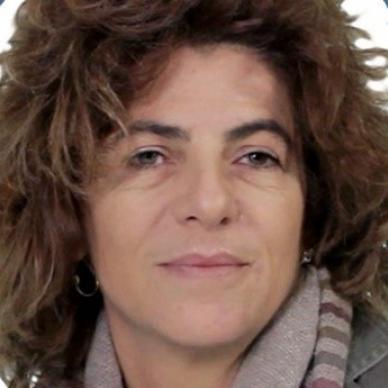Where: Aula Magna, Building E, Area Bruno Pontecorvo, Largo Bruno Pontecorvo 3, Pisa (Italy)
When: Monday 4 July 2022, h 15:00-16:30
This event is part of the Ph.D. AI & Society Summer School 2022 and Joint Session with workshop EmbeDS.
Goal
Over the last decade, AI researchers have made groundbreaking progress in hard longstanding problems related to machine learning, computer vision, speech recognition, and autonomous systems. Despite this success of AI, its adoption so far is mostly in low-risk applications, while the uptake in medium/high-risk applications, which might have a deeper transformative impact on our society, such as in healthcare, public administration, safety-critical industry etc., is still low compared to expectations. The reasons for such lagging are profound. Adoption barriers include perceived challenges to the autonomy and the oversight capacity of human users, the required effort, dissatisfaction with user interfaces and, above all, trust concerns related to poor users’ knowledge about the assumptions, limitations and capabilities of AI systems.
Well beyond currently available technologies, we need AI systems capable of interacting and collaborating with humans, of perceiving and acting within evolving contexts, of being aware of their own limitations and able to adapt to new situations, and interact appropriately in complex social settings, of being aware of their perimeters of security and trust, and of being attentive to the environmental and social impact that their implementation and execution may entail. In short, we need AI that does not yet exist.
The panelists will address, form their unique perspectives, the question: along which lines will the future of AI research unfold?
Panelists
Francesca Chiaromonte (Scuola Sant’Anna)
 I am a statistician developing methods for the analysis of large, high-dimensional and complex data, and applying such methods in several scientific fields – including contemporary “Omics” sciences, Meteorology and Economics.
I am a statistician developing methods for the analysis of large, high-dimensional and complex data, and applying such methods in several scientific fields – including contemporary “Omics” sciences, Meteorology and Economics.
I received a Laurea (cum laude) in Statistic and Economic Sciences from the University of Rome La Sapienza (Rome, IT), where I worked with Giovanni Dosi on a thesis titled Processes of Microeconomic Innovation and Macroeconomic Dynamics, and a Ph.D. in Statistics from the University of Minnesota (Minneapolis, MN, USA), where I worked with R. Dennis Cook on a thesis titled A Reduction Paradigm for Multivariate Laws.
At the Sant’Anna School of Advanced Studies I am a faculty in the Institute of Economics, the scientific coordinator of EMbeDS (a MIUR-funded Department of Excellence for Economics and Management in the era of Data Science) since 2018, and the internal referent for the PhD in Data Science — established as a consortium with the Scuola Normale Superiore, the University of Pisa, the CNR and the IMT of Lucca in 2017. At Penn State (University Park, PA, USA) I work in the Department of Statistics, I have a courtesy affiliation with the Department of Public Health Sciences, and I am active in the Institute for Genome Sciences (one of the Huck Institutes of the Life Sciences), the Center for Computational Biology and Bioinformatics and the Center for Medical Genomics. In 2019, I have been named the Dorothy Foehr Huck and J. Lloyd Huck Chair in Statistics for the Life Sciences.
Other academic institutions where I entertain collaborations and spent time over the years include the MOX laboratory of the Politecnico di Milano (Milan, IT), the Istituto di Analisi dei Sistemi e Informatica of the CNR (Rome, IT), the Institute for Pure and Applied Mathematics of UCLA (Los Angeles, CA, USA), the Courant Institute of Mathematical Sciences and the Department of Biology of NYU (New York, NY, USA), the International Institute for Applied Systems Analysis (Laxenburg, AT), and the Santa Fe Institute (Santa Fe NM, USA).
Since 2016, I am a Fellow of the American Statistical Association “for outstanding collaborative work in high throughput biology, contributions to methodology in statistics and bioinformatics, commitment to interdisciplinary research, and leadership in developing training programs at the interface of statistics, computation and the life sciences.
Rita Cucchiara (University of Modena & Reggio Emilia)
 Rita Cucchiara (Master in Electronic Engineering, 1989 and Phd in Computer Engineering- 1993 University of Bologna), is Full Professor of Computer Engineering at the University of Modena and Reggio Emilia (UNIMORE), Department of Engineering “Enzo Ferrari”. Since 2021 she is Director of the AIRI Interdept. Center “Artificial Intelligence Research and Innovation” of UNIMORE and she coordinates the research lab AImagelab , which gathers more than 40 researchers in research areas related to AI, Computer Vision, Machine Learning, Multimedia. (www.aimagelab.unimore.it) coordinating several EU projects, national projects and many Industrial research projects with the UNIMORE AI academy.
Rita Cucchiara (Master in Electronic Engineering, 1989 and Phd in Computer Engineering- 1993 University of Bologna), is Full Professor of Computer Engineering at the University of Modena and Reggio Emilia (UNIMORE), Department of Engineering “Enzo Ferrari”. Since 2021 she is Director of the AIRI Interdept. Center “Artificial Intelligence Research and Innovation” of UNIMORE and she coordinates the research lab AImagelab , which gathers more than 40 researchers in research areas related to AI, Computer Vision, Machine Learning, Multimedia. (www.aimagelab.unimore.it) coordinating several EU projects, national projects and many Industrial research projects with the UNIMORE AI academy.She is ELLIS Fellow and Director of the Modena unit of the European ELLIS network, of the NVIDIA AI Technical Center (NVAITC@UNIMORE) and ELLIS representative member on the EU board of ADRA (AI Data and Robotics Association). Since 2020, she is coordinated the working group on Artificial Intelligence of MUR PNR2021-2027 and collaborates with the Presidency Minister Council of Italy for AI. Since 2021 she is in the Advisory Board of Max Plank IIS (Tubing, Germany) and of the Computer Vision Center (Barcelona, Spain). Since 2022 she is member of the Director Board of Italian Institute of Technology (Italy), Prometeia spa and ART-ER.
In the past, (2018-21) she has been Director of the Lab. CINI National Lab AIIS and (2016-18) she was President of the Italian Ass. in Computer Vision, Pattern Recognition and Machine Learning and member of the IAPR Board. She is part of Advisory Board of CVC and ECVA, the main foundations for Computer Vision Conferences and is currently Associate Editor of IEEE T-PAMI. Many organization roles: GC of IAPR2020, MM2020, ECCV2022, CVPR2024, PC of ICCV2017, Area Chair of many editions of CVPR, ICCV, NeurIPS, ECCAI. She is co-author of more than 500 scientific publications with current Scholar H-index 61.
Fosca Giannotti (Scuola Normale Superiore)
 Fosca Giannotti is professor of Computer Science at Scuola Normale Superiore, Pisa and associate at the Information Science and Technology Institute “A. Faedo” of the National Research Council, Pisa, Italy. She has been recently awarded the prestigious European Resarch Council Advanced Grant “XAI – Science and Technology for the Explanation of AI Decision Making”. She is among core PI scientists of the two AI network of Excellence: TAILOR and HumaneAI_Net. Professor Giannotti is a pioneering scientist in mobility data mining, social network analysis and privacy-preserving data mining and responsible AI. She co-leads the Pisa KDD Lab – Knowledge Discovery and Data Mining Laboratory, a joint research initiative of the University of Pisa and ISTI-CNR, founded in 1994 as one of the earliest research lab on data mining. She is a recognized international authority in social mining from Big Data: smart cities, human dynamics, social, trustworthy AI.
Fosca Giannotti is professor of Computer Science at Scuola Normale Superiore, Pisa and associate at the Information Science and Technology Institute “A. Faedo” of the National Research Council, Pisa, Italy. She has been recently awarded the prestigious European Resarch Council Advanced Grant “XAI – Science and Technology for the Explanation of AI Decision Making”. She is among core PI scientists of the two AI network of Excellence: TAILOR and HumaneAI_Net. Professor Giannotti is a pioneering scientist in mobility data mining, social network analysis and privacy-preserving data mining and responsible AI. She co-leads the Pisa KDD Lab – Knowledge Discovery and Data Mining Laboratory, a joint research initiative of the University of Pisa and ISTI-CNR, founded in 1994 as one of the earliest research lab on data mining. She is a recognized international authority in social mining from Big Data: smart cities, human dynamics, social, trustworthy AI.
Michela Milano (University of Bologna)
 Michela Milano is full professor of Artificial Intelligence at DISI – University of Bologna since April 2016. She is past Deputy President of the European Association of Artificial Intelligence (EurAI) and past Executive Councilor of the Association for the Advancements of Artificial Intelligence (AAAI), past member of the Executive Committee of the Association for Constraint Programming and of the Italian Association of Artificial Intelligence.
Michela Milano is full professor of Artificial Intelligence at DISI – University of Bologna since April 2016. She is past Deputy President of the European Association of Artificial Intelligence (EurAI) and past Executive Councilor of the Association for the Advancements of Artificial Intelligence (AAAI), past member of the Executive Committee of the Association for Constraint Programming and of the Italian Association of Artificial Intelligence.
Her research activity concerns Artificial Intelligence with particular focus on decision support and optimization systems covering both theoretical and practical aspects in application fields as energy, mobility, computing, policy making and sustainability. In this field Michela Milano has achieved international visibility and has collaborations with many research groups and companies. She is Editor in Chief of the Constraints Journal, Member of the Editorial Board of ACM Computing Surveys for the area of Artificial Intelligence, past Area Editor of INFORMS Journal on Computing in the area Logic, Constraint and Optimization. She has edited two collections on hybrid optimization and she is author of more than 170 papers on peer reviewed international conferences and journals. On these topics Michela Milano has given many tutorials and keynote talks in in the major international conferences on Artificial Intelligence.
She coordinated many European, Italian and regional projects and she is responsible of collaborations with industries. In 2016 she has been the recipient of the Google Faculty Research Award on the use of deep network in combinatorial optimization.
Sara Tonelli (Fondazione Bruno Kessler)
 Since 2013 I am the head of the Digital Humanities research group at FBK. I am currently involved in the H2020 ODEUROPA project, where I lead the work-package related to olfactory information extraction, and in the H2020 PERCEPTIONS project, related to the online perception of EU and the narratives around migration to EU. Since January 2021 I am also the scientific coordinator of the KID ACTIONS European project, aimed at addressing cyberbullying among children and adolescents through interactive education and gamification. I am also part of several other digital humanities projects, which can be found here.
Since 2013 I am the head of the Digital Humanities research group at FBK. I am currently involved in the H2020 ODEUROPA project, where I lead the work-package related to olfactory information extraction, and in the H2020 PERCEPTIONS project, related to the online perception of EU and the narratives around migration to EU. Since January 2021 I am also the scientific coordinator of the KID ACTIONS European project, aimed at addressing cyberbullying among children and adolescents through interactive education and gamification. I am also part of several other digital humanities projects, which can be found here.
I have a Phd in Language Sciences from Università Ca’ Foscari, Venice. In 2020 I got the national habilitation as Associate Professor (seconda fascia) for the area `Information Systems’ 09/H1. I am also a member of ELLIS, the European Laboratory for Learning and Intelligent Systems, and an appointed Honorary Fellow (cultore della materia) in Computational Linguistics L-LIN/01 at Università di Pavia, Italy.
I was involved in the past in several European project: Pescado (FP7 – keyword extraction), Terence (FP7 – event-based text simplification), NewsReader (FP7 – event extraction and semantic role recognition), SIMPATICO (H2020 – text simplification in the administrative domain), HATEMETER (REC – social media monitoring for islamopohobia detection), CREEP (EitDIGITAL – Cyberbullying detection).
Anna Monreale (University of Pisa), Moderator
 Anna Monreale is Associate Professor at the Computer Science Department of the University of Pisa and a member of the KDD LAB. She has been a visiting student at the Department of Computer
Anna Monreale is Associate Professor at the Computer Science Department of the University of Pisa and a member of the KDD LAB. She has been a visiting student at the Department of ComputerScience of the Stevens Institute of Technology (Hoboken, New Jersey, USA) (2010). Her research interests include big data analytics, social networks analysis and the study of privacy and ethical issues rising in learning AI models from these kinds of social and human sensitive data. In particular, she is interested in the evaluation of privacy risks during analytical processes, in the definition of privacy-by-design technologies in the era of big data, and in the definition of methods for explaining black box decision systems. She earned her Ph.D. in Computer Science from the University of Pisa in June 2011 and her dissertation was about privacy-by-design in data mining.
